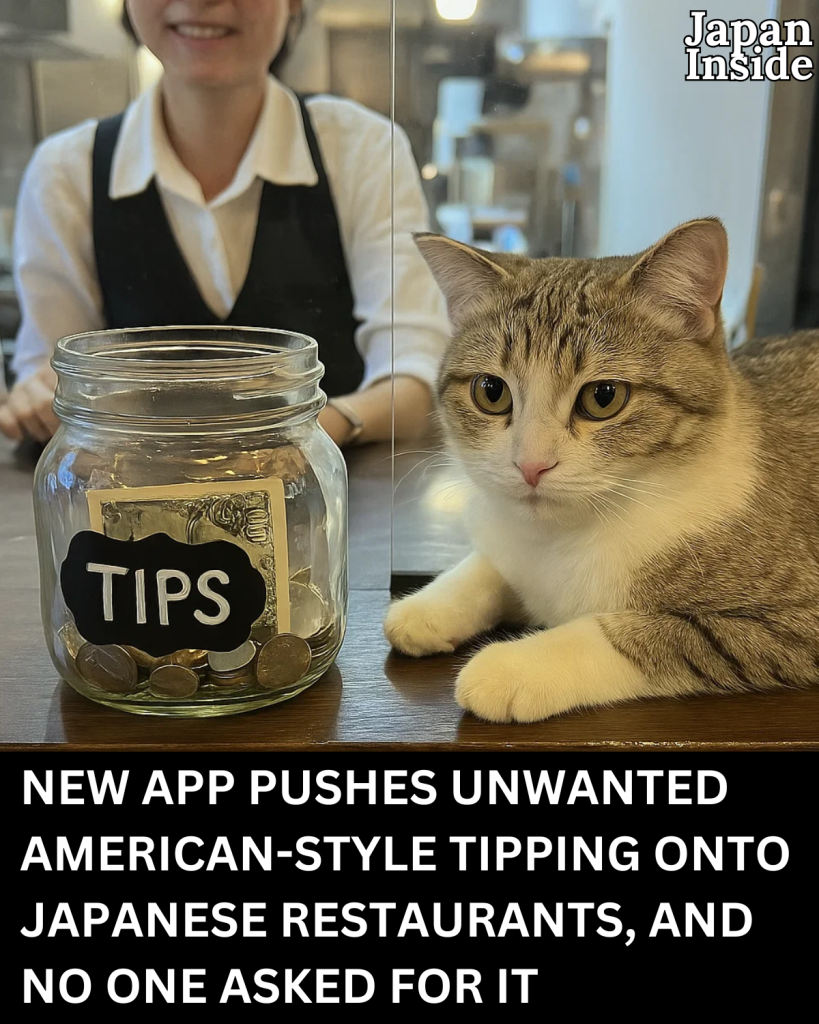Dinii Introduces Tipping in Tip-Free Japan, Sparking Cultural Debate
Tokyo‑based restaurant‑tech startup Dinii has quietly added a tipping option to its QR code–based mobile ordering platform. Since June 2025, diners can now choose to tip up to 25 % of their bill directly to the restaurant—marking a sharp departure from Japan’s steadfast tradition of tip‑free service. This follows the company’s earlier “Oshi Support” feature, introduced in 2020, which allows patrons to send extra money directly to individual staff based on performance or personality—similar to “fan” support models.

Limited Adoption Signals Reluctance
Despite Dinii’s network of around 3,000 restaurants, only about 13 % have enabled the tipping feature, underlining industry hesitation. With tipping unfamiliar and often unwelcome in Japan, many restaurant operators appear cautious about adopting this feature.
Foreign Tourists Leading Uptake
Dinii reports both Japanese and foreign users have utilized tipping, but tipping activity is heavily skewed toward foreigners—especially in tourist hubs such as Osaka and Kyoto. This suggests tipping may be seen as an imported custom and not aligning with domestic expectations.
Clash with Omotenashi Values
Critics argue tipping undermines the Japanese philosophy of omotenashi, where exceptional service is regarded as a baseline standard rather than something to be rewarded separately. Leaving a tip may be perceived as implying that standard service wasn’t good enough, an affront to professional pride. Numerous cultural guides emphasize that tipping can be seen as insulting or confusing; servers may even chase down patrons to return mistakenly offered tips . Tight cultural norms make tipping largely unnecessary and potentially offensive .
Historical Precedent of Failed Tipping Campaigns
Dinii’s tipping push isn’t the first. In 2021, a private initiative known as the “Tip Project” attempted to introduce tipping culture via branded “tip tickets.” However, heavy public backlash led to its shutdown in the first half of 2023.
Strategy Behind the Rollout
Amid Japan’s ongoing service industry labor shortages—with job‑applicant ratios for hospitality roles significantly above the national average—Dinii argues tipping can serve as motivation and boost staff morale. Backed by a recent Series B funding of approximately $48 million led by Bessemer and Hillhouse, the company is rapidly expanding its all‑in‑one cloud POS, mobile ordering, CRM, and tipping ecosystem across Japan and into Southeast Asia.
What This Means for Japanese Dining
For now, tipping remains a minor, optional feature largely embraced by tourists and resisted by locals. The limited rollout and uptake suggest Dinii’s experiment might be a soft pilot rather than a full‑scale transformation. Its success or failure could indicate whether Japan is willing to allow foreign customs to disrupt its deeply ingrained service ethos.
Time will tell if this marks a cultural pivot or a niche anomaly. The broader industry will be watching whether Dinii’s tipping feature expands beyond a few locations or remains a quietly tested addition in a tradition‑bound dining culture.